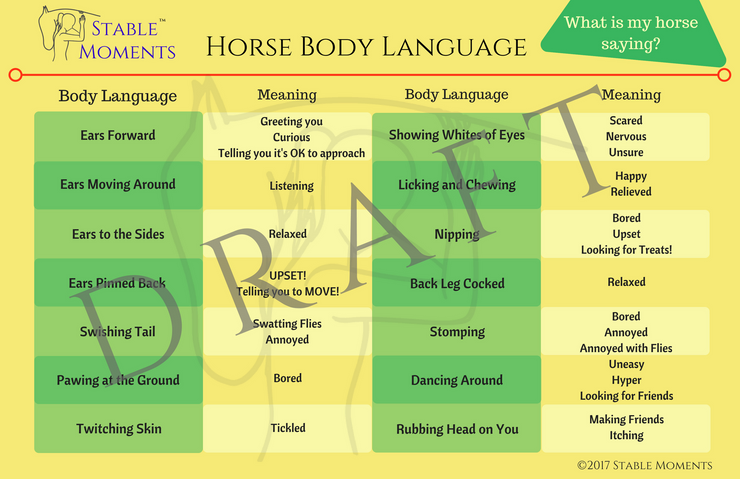What's My Horse Saying?
Oct 18, 2018Nathan walked into the stable timidly, with his hands behind his back. His mentor greeted him and asked, "Are you excited to work with your horse today?" Nathan looked up sheepishly and gave the slightest smile, with a tiny nod of affirmation. They walked together to the grooming stall, where Nathan's horse Buster was ready for him.
Nathan was stiff as he raised a brush to Busters side, but after a few strokes he was able to relax and enjoy the process a bit. Suddenly, Buster lifted his front hoof and stomped it back down on the ground. Nathan jumped, dropped the brush and stepped far away exclaiming, "ok, I don't think he likes me!"
Meeting a horse can be intimidating, stimulating, and/or exciting for any child, let alone a child with developmental trauma. It is important you are able to have a conversation with the child about horse body language and what the horse is really saying.
Was Buster irritated with Nathan? Were there flies on his leg? Did he miss his friends in the pasture? These conversations can help give meaning to the situation rather than just dismissing it and saying, "oh no, he likes you, come back."
One way to facilitate these conversations is with the Body Language Chart. If a child is really startled, sitting down with him and going through all the things horses communicate, using their body language can be a great teaching moment, while honoring, that without knowing how to read the language, it definitely could be scary.
This works just as well with children who are overly excited and/or aren't bothered at all with how the horse is reacting. With these children, setting some intentional time to observe is helpful. "Hmm, I noticed when you hugged him, he put his ears back and his lips got tense, I wonder what that means?" Using the chart can be a fun game to help children understand the horse's experience and also allows the mentor to be curious rather than corrective with their mentee.

One child. One hour a week. One life changed.
Learn how to launch a program today.
Get new activities and trauma tidbits straight to your inbox!
We hate SPAM. We will never sell your information, for any reason.


